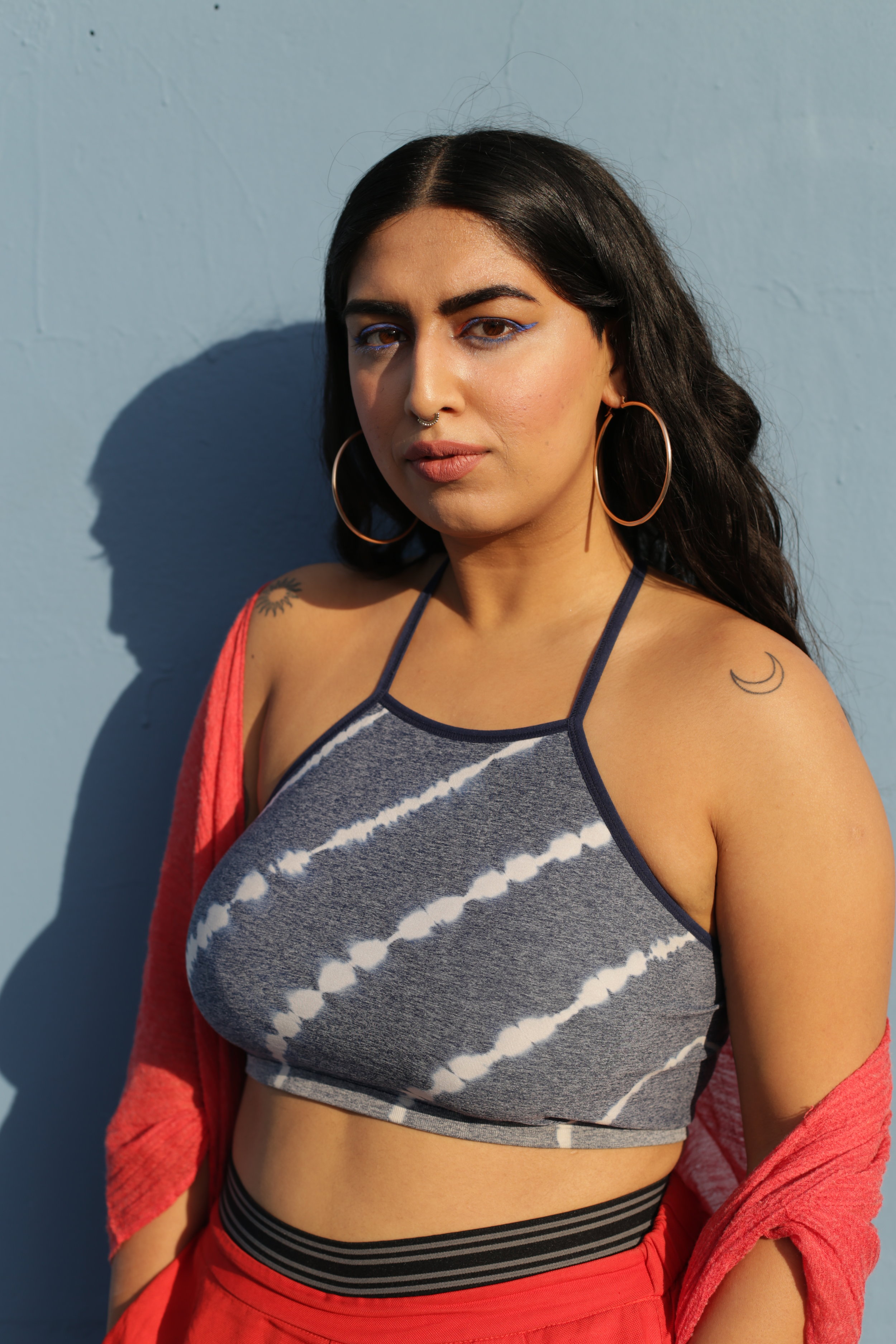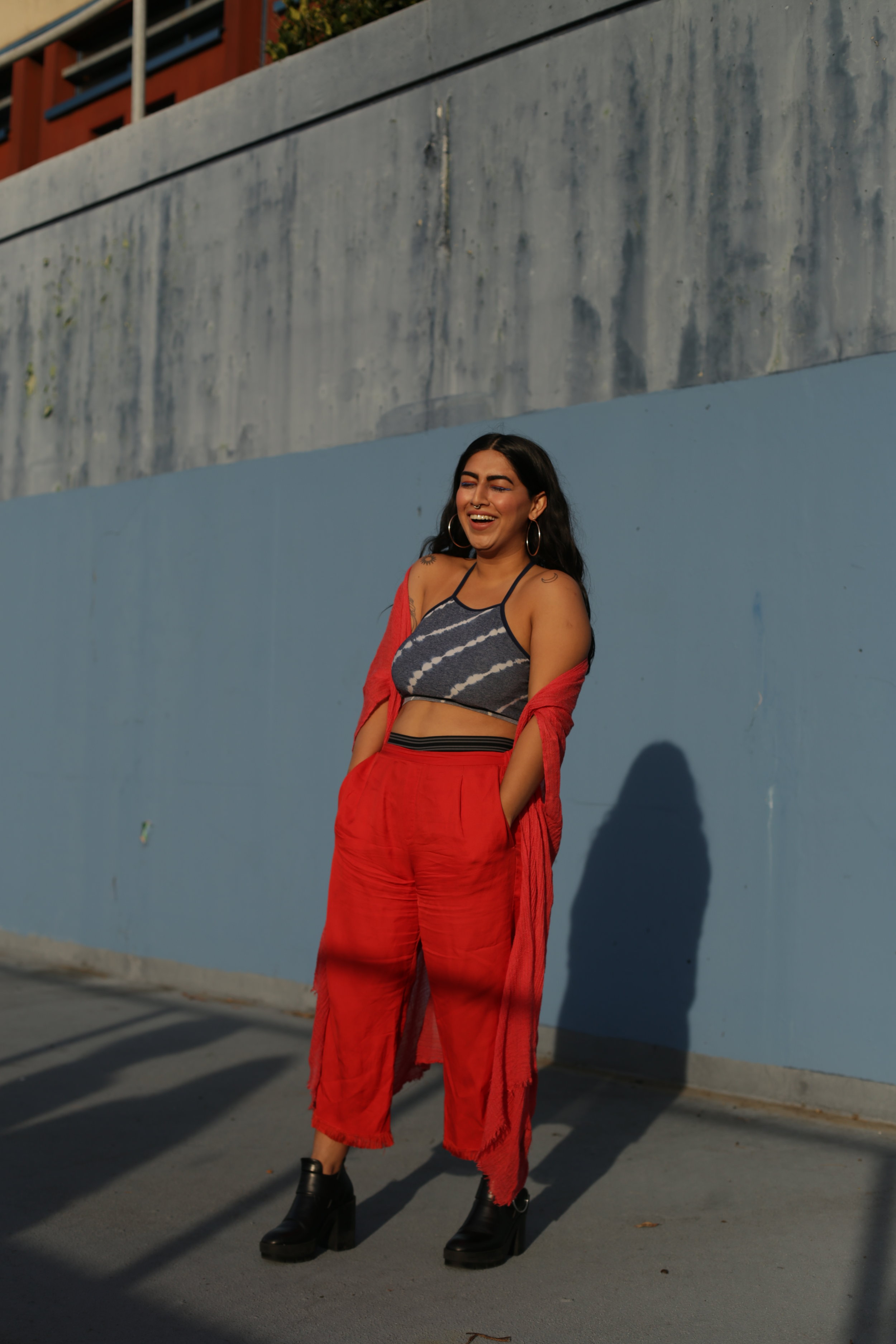REAA'S CINEMATIC VISION FOR PROGRESSIVE CHANGE
Storytelling by Deena ElGenaidi
Reaa Puri, 23, is a filmmaker with a mission: thoughtful, nuanced representation of different communities on film. She aims to tell stories about real people in order to create positive change while engaging in social justice and art.
Puri was born in Berkeley, CA but then moved to India with her family, where they remained until she turned ten. She and her family lived in Kuwait for six years before moving back to Berkeley for high school. As a result, she grew up around several different cultures, with friends from all over the world. Despite this, she never quite felt like she belonged anywhere.
“In India, I didn’t feel Indian. In Kuwait, I wasn’t Kuwaiti. At Berkeley High, I was around white people for the first time,” Puri said. She adds, “The idea of home and identity is something I was confused about—something I had to navigate. I felt like an outsider to different communities … with multiple identities that are in conflict to one another.”
Puri identifies as a queer Indian woman, and her identity plays a large role in the work she creates. She wants to build a space where people like her can see representations of themselves in film. “I haven’t seen people like me on film,” Puri said. “I need to create that space.”
As a filmmaker, Puri wants to make sure that people of all different backgrounds and identities are represented in a realistic, natural way, involving members of different communities whenever possible.
At the moment, for instance, Puri is working on a project around Navajo youth. The main struggle, she said, is telling the story without being from that community. Her plan, then, is to collaborate with the Navajo youth in order to fully represent them in the film. “We’ll have workshops with the kids shown in the film. We’ll give them cameras so that they can also film. We’ll send them the cut and get their feedback.”
In this way, the youth are fully represented, and it isn’t a film “exorcizing non-white communities,” Puri said. Discussing the idea of representation in her own work, Puri said, “It’s tricky. It depends if it’s documentary or narrative. You can’t just have a cast that’s diverse. There are various lenses and layers.”
The idea of representation today has become profitable, Puri said. “But we have to be more critical of representation. We have to look at how corporations are using representation … With something like the Pepsi ad, you can see right through the crap.”
Puri had always been interested in politics, but her interest in film came about when her mother, fashion designer Pria Kataaria Puri, put her in contact with a few filmmakers that landed her an Assistant Director role on the film Mary Kom, starring Priyanka Chopra.
“It was exciting to be a part of something big,” Puri said. “After that film, I was like, this is what I want to do with my life.” When Puri began school at UC Berkeley, she devoted much of her time to learn how to use a camera, researching film, and working on her own short films in a realm generally “dominated by white men,” she said. She also took classes outside the film department and worked at Carbonated TV, reporting and producing documentaries with a social justice bent while still in undergrad. Her selected works can be found here: http://www.reaapuri.com/carbonatedtv/
Currently, Puri works as a Video Producer with Hearst Media. She calls it her “day job,” creating videos for their lifestyle publication Best San Francisco. “I get to capture the best spots in the Bay, videos on pizza tattoos…” Puri said. “It’s the first time I’m doing work that’s not at all political, which is interesting to navigate. It creates an additional responsibility for me to create work outside of that.” Puri adds, “It’s interesting to get paid for your art.” Outside of her day job, though, Puri continues to work on her own activist projects. “I have to keep working and meeting people and collaborating.”
Her mentors are people she knows personally, as well as filmmakers that inspire her. She mentions her aunt, Ravneet Vohra, the founder of Wear Your Voice Magazine; Puri admires her for creating this space and knowing when to step back and allow the space to grow, “amplify[ing] voices that are in positions of less power.”
“People I look up to are doing things that are harder to do and going against the wave—doing it because they believe in something. They believe in this radical vision of the world and what it could be.”
###
You can learn more about Reaa Puri at www.reaapuri.com or contact reaapuri@gmail.com for work or press inquiries.
We are a community of creatives united by the belief that creativity can spark positive impact in our world.
We amplify the stories of creative catalysts and their positive impact via StellarCollective.com





